#edward hall
Explore tagged Tumblr posts
Text

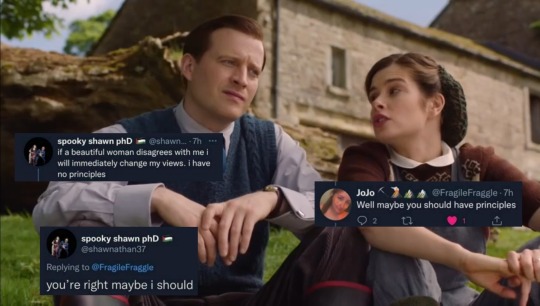
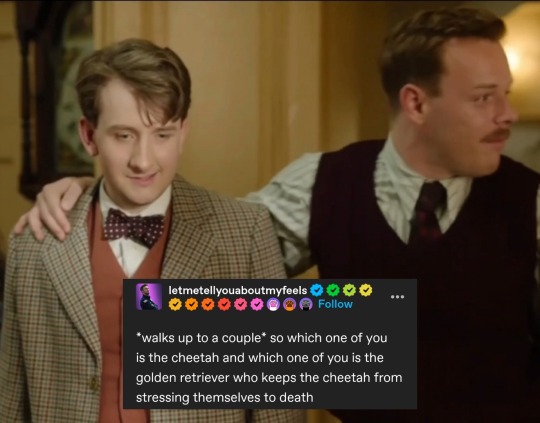


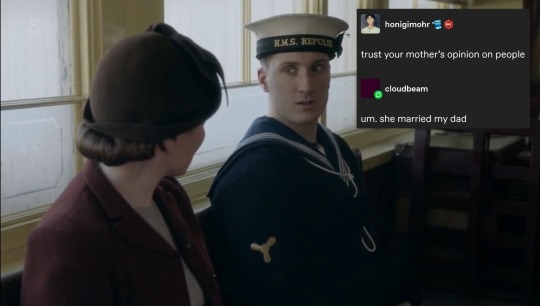

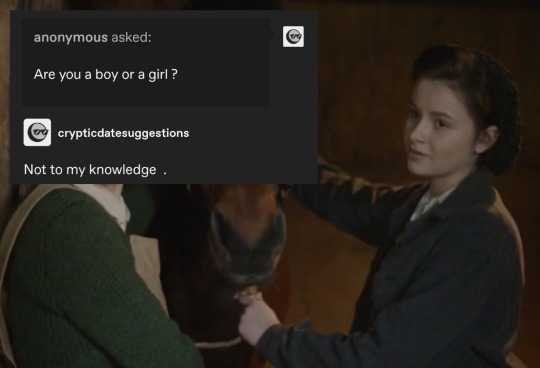

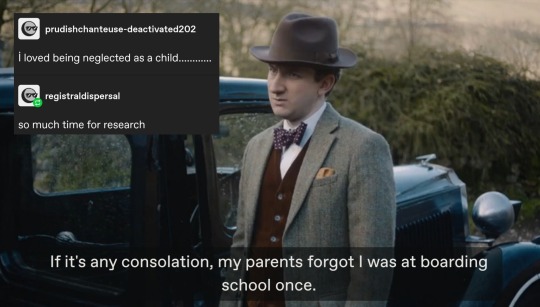
#acgas#acgas 2020#all creatures great and small#all creatures great and small 2020#siegfried farnon#james herriot#helen herriot#richard carmody#tristan farnon#acgas doris#doris acgas#jenny alderson#acgas penelope#penelope acgas#audrey hall#edward hall#text posts#always gotta push my trans tristan and nonbinary jenny agendas#james x helen#helen x james#jalen#tristan x carmody#carmody x tristan#farmody
93 notes
·
View notes
Text

“I love you Ma”
92 notes
·
View notes
Text



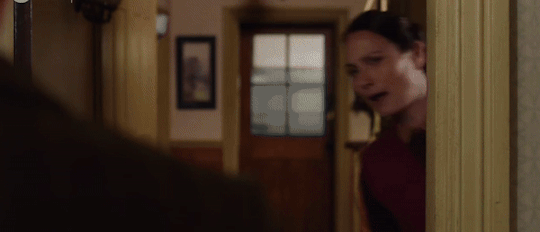
All Creatures Great and Small (2020-)
Audrey Hall and her four sons - sometimes exhausted, always proud mother.
She gave birth to one and some higher power teared up over all the motherly love she had in her heart and gave her three more for free! (True story)
Inspired by owlsie-hoot's adorable hugs (x)
#all creatures great and small#acgas 2020#audrey hall#one son for each season!#richard carmody#tristan farnon#edward hall#james herriot#proud mother
196 notes
·
View notes
Text
Some Christmas s5 spoilers ahead ACGAS
There is no doubt that Siegfried and Audrey are already a couple. They have an intimacy not shared with the others. Siegfried is the first and only one not to sugarcoat the news about the HMS Repulse. Honesty is what Audrey needed at that moment; she looked directly at Siegfried to tell her exactly what the newscast said. And when she needed to have hope and for Siegfried to also have hope, she asked him for it in the form of saving the fox. She ran through the house with the injured fox yelling, "Mr. Farnon, I need you!" When Siegfried said he wanted to put the fox down, she lashed out at him for not trying when he saw that hope was gone, and why should Siegfried decide what God wants. Siegfried understood the assignment: he did all he could to save the fox.
On top of this, when Audrey returns home from visiting Edward's pal, she walks to the shed. That's the place she's found quiet and comfort, to find Siegfred there. She walks directly where he is, with the camera set as if it was the subjective view from Siegfried. That technique and camera angle hasn't been used before on ACGAS. It is the director and writers tipping their hands to an intimacy with the two characters. Plus, Audrey immediately recognized Siegfried had helped her and the fox, that she could tell Seigfried the anguish she was feeling about her son's MIA status, and she could share her new-found quiet space/the shed space with him. At that point they're back to being together on the same wavelength and path.
When she wakes up in the morning, Audrey's reaction makes me think she's used to being near Seigfried and doesn't have a moment of embarrassment to have fallen asleep in his presence or that he too spent the night in the shed -- albeit a few feet from her.
As others on Tumblr have indicated too, the script is full of tells. Mrs. Taylor will hold the goose "under Farnon", there are references to "our house" and "our shed". Siegfried and Audrey were missed as a couple at Jimmy's birthday tea, and that they together can wish Jimmy a happy birthday the next day.
At this point, the writers might as well admit this two are a couple. The audience is being teased some, but if one day we have a scene revealing that Siegfried and Audrey have been a romantic couple off camera in an era appropriate way that pays attention to Audrey's sincere religious beliefs, I wouldn't be entirely surprised.
#acgas#acgas spoilers#siegfried x audrey#audrey hall#siegfried farnon#acgas s5#all creatures great and small#edward hall#Siegfried Farnon
46 notes
·
View notes
Text
Will there be a time jump in acgas series 6?
I know some fans are concerned about the possibility of a time jump in season 6. After all, there is the risk of too much off-screen development for a start. However, I personally think a time jump would be a good thing if it happens. There's still years left of the second world war, so it would take at least two more seasons to cover the whole period. A time jump would allow the writers to explore the aftermath of the war. Also, there's lots of reasons why they would choose to do a time jump at this stage in the series:
. In series five, both James and Tristan settled back into Skeldale. This opens up a possibility for them to bond over their experiences. While it's unclear if Tristan will be called up again, it's possible that he'll stay around like James has. If this is the case, a time skip would be effective in showing how both men reflect on their service in the war, and the long term impact of their service.
. On a similar topic, we know a lot about James' war experience but not much about Tristan's. If we had some flashbacks of Egypt, it would parallel with Siegfried's flashbacks of Ypres in season 3. Memories of war have been a huge part of Siegfried's characterisation, so it would make sense for this to bleed into Tristan's as well.
. A time skip would also mean that Jimmy would be a bit older. This could give James and Helen a reason to have another baby. I'm not sure what the age gap between Alf Wight's real children is, but it would be interesting to welcome a new character to mark the end of the war.
. After the S5 Christmas special, I don't know what will happen to Edward. If he is caught in the Japanese invasion of Singapore, this would result in another agonising storyline for Audrey. Given the history of Singapore, I don't want to see this happen to her. A time jump could enable the writers to see Edward's storyline through to a point where he can return home. I don't want the writers to explain it away, but a reunion between him and Audrey would be so rewarding.
. Carmody may be tied up in London for the remainder of the war, due to his duty as a researcher (although I don't know how they'll handle the blitz 😐). It would be nice to see Carmody return to Skeldale after the war, either just for a visit or to stay for a while.
. A time skip would give Jenny a chance to grow off-screen and contemplate her future. In the last season, she wanted to leave to work in Leeds (?), so it will be interesting if she decides to stay there.
. If Siegfried × Audrey happens, a time jump might actually be another reason for them to get together. (I know Donald Sinclair married Audrey Adamson in 1943 but acgas does it's own thing). Until the end of the war, Siegfried will be anxious in case Tristan is called up again. Similarly, Audrey will continue to fear for Edward until he returns home safely. When the horrors of the war are behind them, Siegfried and Audrey will have more time to think about their feelings for each other.
The time skip in season 6 is still unconfirmed (as far as I know) so this is just speculation. The final reason why a time jump would be neat is because the original series did it, but I guess we'll see.
#acgas 2020#acgas#siegfried × audrey#acgas s5#acgas s6#james herriot#helen alderson#audrey hall#edward hall#siegfried farnon#tristan farnon#richard carmody#jenny alderson#all creatures great and small#channel 5
22 notes
·
View notes
Text




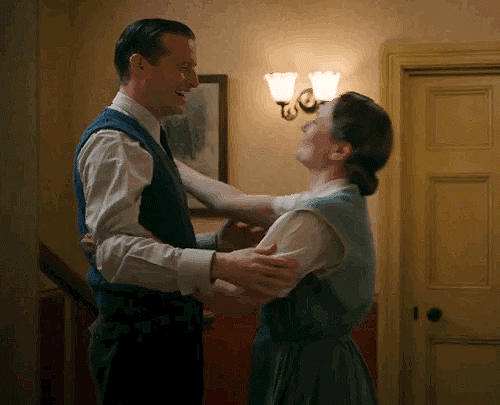


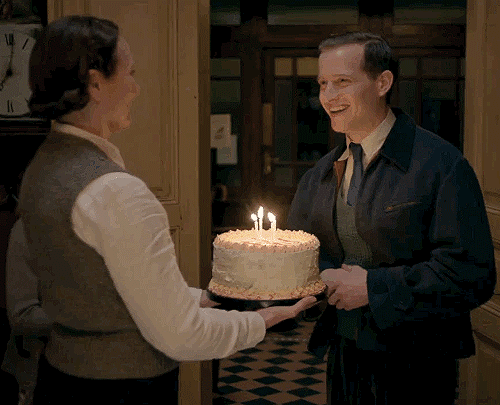

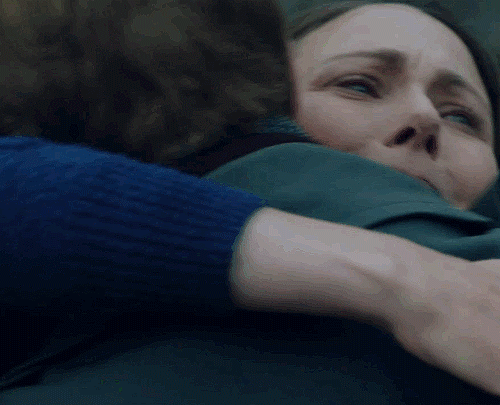
Audrey and her boys. All Creatures Great and Small (2020)
#acgas 2020#siegfried x audrey#audrey hall#tristan farnon#james herriot#edward hall#all creatures great and small#gifset#mine#siegfried farnon#acgas
320 notes
·
View notes
Text

https://archiveofourown.org/works/61958143/chapters/165491371
The next chapter is up!
Audrey and Siegfried share some quality time and come to an agreement...
#acgas 2020#all creatures great and small#siegfried x audrey#audrey hall#siegfried farnon#fanfiction#tristan farnon#edward hall
11 notes
·
View notes
Text
'See you at the end of the aisle' - chapter 5
The final installment in my 'How long have you felt this way?' Tristan/Richard series ✨
Summary: It's a busy weekend for Skeldale house: with Siegfried and Audrey's wedding just around the corner, Edward visits Darrowby with Paddy to celebrate the happy day. Meanwhile, Tristan has a very important question for Carmody.






A little snippet for you all :)
It was just a door, no more interesting than any other door in this grand house - but one which, had it not broken in the specific way it did, could have changed the course of his and Tristan's lives forever - if that handle hadn't broken, they wouldn't have gotten locked in that storage room; if that hadn't happened, perhaps their animosity would have lasted for longer, delaying their friendship and their eventual courtship (if that even would have still happened); if they hadn't gotten as close as they did, when they did, would Carmody have written a research proposal ensuring his swift return to Darrowby? Would Tristan have confessed his feelings last Christmas? Would they be together now? His mind boggled, preferring not to think of all the eventualities; it was too painful to bear, the idea of Tristan not being in his life in the way he currently was: Carmody's best friend, partner, co-worker, confidant, and so, so much more. With this man - this silly, eccentric, wonderful, beautiful man - was Carmody's most treasured place on this earth. The safe sanctuary of their bedroom, and of Skeldale House, and of the budding life they were building together was a matter purely sacred to his heart.
The only song I will recommend for this chapter :)
#all creatures great and small#acgas#acgas 2020#tristan farnon#farmody#richard carmody#acgas fanfic#audrey hall#siegfried farnon#siegfried x audrey (background)#Spotify#edward hall#Paddy granger acgas#gifs by me
8 notes
·
View notes
Link
Chapters: 5/? Fandom: All Creatures Great and Small (TV 2020) Rating: Teen And Up Audiences Warnings: Creator Chose Not To Use Archive Warnings Relationships: Siegfried Farnon/Mrs. Hall | Audrey Hall, Siegfried Farnon & Mrs. Hall | Audrey Hall Characters: Siegfried Farnon, Mrs. Hall | Audrey Hall, Jenny Alderson, Edward Hall (All Creatures Great and Small) Additional Tags: surprise he’s home, Jenny doesn’t stop talking, Edward’s POV, mentions of injury, yorkshire eh? Series: Part 8 of Gift Ideas for Him & Her Summary:
Edward’s the gift. That’s it. (It’s a surprise by the way. Don’t tell anyone)
#acgas#siegfried farnon#edward hall#audrey hall#siegfried x audrey#chapter 5 is up!#a03 fanfic#a03 writer
7 notes
·
View notes
Text
For your reading (dubious) pleasure
#acgas 2020#all creatures great and small#siegfried farnon#audrey hall#siegfried x audrey#all creatures great and small 2020#tristan farnon#Edward Hall#family#merry bloody christmas#ACGAS Christmas#ACGAS secret Santa 2024
9 notes
·
View notes
Text


Their boys🥹
#acgas#all creatures great and small#s4#tristan farnon#Edward hall#siegfried farnon#audrey hall#siegfried x audrey
56 notes
·
View notes
Text
I can't exactly explain it, but I feel like Carmody and Edward would be good pals
#maybe it's the fact they both don't drink#(both times carmody drank could be considered peer pressure but also carmody not being a drinker is so important to me)#maybe it's the fact they're coming into this established family and that's quite daunting#maybe it's because they feel all alone at first but are/are going to be loved by the skeldale family#(I don't know if people think edward will be dead but I'm holding out hope for him being alive but recovering at Pumphrey manor)#acgas#acgas 2020#all creatures great and small#all creatures great and small 2020#richard carmody#edward hall
16 notes
·
View notes
Text
Edward Hall, in his “Chronicle”, describes how on the evening of Shrove Tuesday at York Place, Cardinal Wolsey, the King and ambassadors enjoyed a supper followed by a pageant in the great chamber, which was richly decorated with arras and torches. At the end of the chamber was a castle with towers decorated with banners, one showing three “rent hartes” (torn hearts), another showing “a ladies hand gripyng a mans harte” and the third showing “a ladies hand turnyng a mannes hart” upside down. One of the towers had a cresset burning and in the castle were musicians, hidden from sight, and eight ladies visible in the towers. These ladies, dressed in white satin, were Beauty, Honour, Perseverance, Kindness, Constance, Bounty, Mercy and Pity, the virtues held high in chivalric tradition. The King’s sister, Mary Tudor Queen of France, played Beauty, the Countess of Devonshire played Honour, Jane Parker (later Boleyn) played Constancy, Mary Boleyn played Kindness and Anne Boleyn played Perseverance. Hall describes how each lady had her name (or virtue) embroidered on her dress in gold, and how they wore cauls and gold Milan bonnets decorated with jewels.
Hall goes on to describe how these women, or virtues or graces, were guarded by eight women dressed as Indian women who were named “Danger, Disdain, Gelousie, Vnkyndenes, Scorne, Malebouche, Straitngenes” or Danger, Disdain, Jealousy, Unkindness, Scorn, Malebouche (evil tongue/mouth or Sharp Tongue) and Strangeness, which Eric Ives takes to mean “Off-handedness”. Suddenly, eight lords dressed in cloth of gold caps and blue satin cloaks entered the chamber “led by one all in crimosin sattin with burnyng flames of gold, called Ardent Desire”. These men were named “Amorus, Noblenes, Youth, Attendance, Loyaltie, Pleasure, Gentlenes, and Libertie” and the kyng was chief of this compaignie”. Ardent Desire then asked the ladies, the virtues, to come down from their towers, but Scorn and Disdain told him that “they would holde the place”, so the men attacked the castle throwing dates, oranges “and other fruites made for pleasure” at it. The ladies defended the castle with rose water and “comfittes” or sweetmeats and although Lady Scorn and her company tried to defend themselves with “boows and balles”, they were forced to flee and the lords took the “ladies of honor as prisoners by the handes” and led them out of the castle to dance. The lords and ladies then unmasked themselves and went on to enjoy a rich banquet with those who had watched the Château Vert pageant.
—Claire Ridgeway talking about the Château Vert pageant on 4 March 1522*, On This Day in Tudor History
*Ridgeway dates the pageant to 1 March, but most other sources date it to 4 March. I think the confusion comes from mixing up the more general Shrovetide celebrations and Shrove Tuesday. Shrovetide (the name for the entirety of the Shrove celebrations) began on 1 March, whereas the Château Vert pageant happened on Shrove Tuesday which was 4 March.
9 notes
·
View notes
Text
Richard's charge at Bosworth, according to Edward Hall's chronicle.
...And being inflamed with ire and vexed with outragious malice, he pit his spurres to his horse and rose out of the dyde of y range of his battaile, leyung auntgardes fighting and like a hungry lion ran with spere in rest towards him. Therle of Richmonde perceyued wel the king furiusly commying towards him, and by cause the hole hope of his welth and purpose was to be determined by battaill, he gladly proferred to encoutre with him body to body and man to man. Kyng Rychard set on so sharpely at thefirst Brout y he ouerthew therles standarde, and slew Sir William Brandon, his standarde bearer(which was father to Sir Charles Brandon by kynge Henry VIII. created duke of Suffolke) and marched hand to hand w sir Ihon Cheinye, a man of great force and strenght which would haue resisted him, and the said Ihon was by him manfully ouerthrowen, and so he making open passage by dent of swerde as he went foward, therle of Richmond with stode his violence and kept him at the swerdes poincte without auantage longer than his companions other thought or iudged, which beying almost in dispaire of victorie, were sodainly recomforted by Sir William Stanley, whiche came to succours with III. thousand tall men, at which very instant kyge Richardes men were dryuen back and fledde, and he himself manfully fyghtynge in the mydell of his enemies was slayne and brought to his death as he worthely had deserued.
Edward Hall's Chronicle was first published in 1548, admitably many decades after Bosworth(1485). But interestingly, not just Vergil describes Henry VII withstanding brunt of Richard's charge for at least a while...
Not all details are same as in my previous post about battle of Bosworth(because i tried to find more contemporary sources) but it is very interesting to hear what more common people(not noblemen and courtiers) thought happened in Bosworth.
If anybody would wish to read in Hall's chronicle, it's online!
And here is the link:
24 notes
·
View notes
Text
Edward Hall and the survivors of the Repulse #ACGAS
#ACGAS will have to decide Edward's fate. Singapore fell to Japan during WWII. The injured sailors were evacuated. Some came home, some became POWs, some went back to battle. It will be interesting to see what the "All Creatures Great and Small" writers decide to do with Edward.
At some point Siegfried and Audrey will have to discuss her future too. Will she leave Darrowby to live closer to or with Edward? What is his condition and what care will he need long-term? Will Edward survive the war? Would Edward move to Darrowby or to a nearby village?
Might this be the catalyst to have them discuss future plans with or without each other?
#acgas#all creatures great and small#audrey hall#siegfried x audrey#siegfried farnon#edward hall#Darrowby
18 notes
·
View notes
Text

#I REALLY hope Edward survives#Audrey deserves to have her son back <3#acgas#acgas 2020#acgas s5#edward hall#audrey hall#siegfried x audrey#tristan farnon#siegfried farnon#james herriot#helen alderson#jimmy herriot#richard carmody#jenny alderson#richard alderson#mrs pumphrey#tricki woo
20 notes
·
View notes